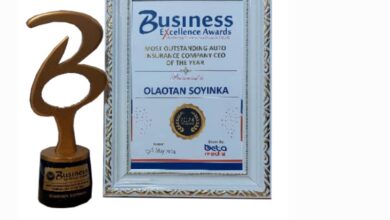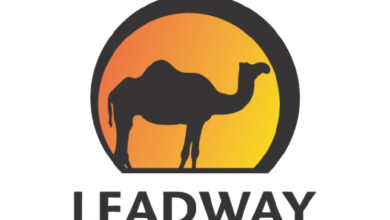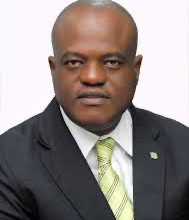Highlighting Factors Affecting Insurance Growth in Nigeria

Development of insurance took place long before Nigeria became the independent country. Since that period, Nigeria has overcome a long path filled with different changes and challenges.
As years went by, the evolution of insurance became more and more visible, though, in comparison with other world countries, insurance in Nigeria is developing quite poorly. The reasons for this come not only from insurance services but also from economic sector.
Factors affecting insurance growth
Over the years Nigeria Insurance industry has continued to face growth challenges and the successive governments have, in various ways, attempted to reform the industry. But despite all these, the industry has continued to experience slow growth despite the nation’s high population and other potentials.
Some factor identified by experts as militating against the industry among others include lack of adequate government support, poor regulation, lack of constitutional backing, negative public perception about the industry, inadequate data, poor pricing of the industry’s product (rate undercutting) and unwholesome practices /unhealthy competition among the industry players.
Low capital base, poor service delivery, delay in claim settlement, non-enforcement of compulsory insurances, lack of technical expertise in the area of high profile risks such as marine, oil and gas and aviation, cut throat discount, removal of some sections of insurance for the establishment of other agencies/paratatals, according to experts, are reasons hindering insurance growth in Nigeria.
Other reasons, industry analysts cited as hindrances to the industry’s growth are lack of awareness/low penetration, religious/cultural belief, poor capacity to handle high profile risk leading to ceding of such risks abroad, lack of acceptable product that meets the needs of the people, dilapidated infrastructure leading to increased cost of operations, inability to deploy technology to drive operations, high taxation and inadequate channels of distribution among others.
Unpopular Regulations/Initiatives
The botched Tier-Based Minimum Solvency capital (TBMSC) and State Insurance Producer (SIP) policy are the most recent ones. One would like to ask, why were these initiative rejected?
According to the President, Independent Shareholders Association of Nigeria (ISAN), Mr. Sunny Nwosu, whose association, ISAN, instituted court case against TBMSC “the problem of insurance industry in Nigeria is not capital inadequacy but making the industry’s shares attractive to the investors and its products meet the yearnings of the people to enhance people acceptance.”
The Tier based minimum solvency capital was introduced, according to NAICOM to compliment the risk-based supervision where underwriters are expected to take risk according to their capacity so that when there is claim, they will be able to pay.
The State Insurance Producer (SIP) policy was aimed at enhancing insurance penetration through encouragement of insurance activities at the states level. But these initiatives were vehemently jettisoned by some stakeholders in the industry who claimed to represent the interest of the investors, citing the timing and lack of proper consultation on the side of the regulator with operators as reason for their action and this compelled NAICOM to withdraw and cancel the policies.
Effect of Unwholesome Practices/Unhealthy Competition
Industry analysts are of the belief that apart from other unwholesome practices going on in the industry, unhealthy competition among underwriters, resulting in premium rate undercutting against prescribed or standard industry rates, is not the way to go in improving insurance growth in the country. Rather, creative and value-added insurance products that scale a skeptical public’s trust barriers to deliver positive customer experiences will deepen insurance penetration and impact positively on the overall growth of the industry.
Tax burden
Insurers are seriously complaining that the industry is over-taxed, which they said is affecting their profit and ability to make returns to stakeholders and shareholders.
Using their past five-year operation as an example, about 55 life and non-life insurance companies in Nigeria have paid N36.5 billion taxes to the federal government through the Federal Inland Revenue Service (FIRS).
The taxes were paid by the companies between 2013 and 2017 financial year end.
Data obtained from the Nigerian Insurers Association (NIA) showed that insurance companies generated N100.4 billion as Profit Before Tax (PBT) and were left with Profit After Tax (PAT) of N63.9 billion, having paid N36.5 billion as taxes to the government.
The tax paid translates to about 35 per cent of the profit made within the period under review by the firms.
Apart from paying taxes on management expenses, short-term lending, among others, insurers were also mandated to pay tax on claims, which is the core business of underwriting, meaning that, the higher the claims paid by an underwriter, the higher the tax accruing to the government.
The federal, state and local governments have embarked on aggressive revenue generation, focusing on corporate bodies including insurance firms are among the major source of revenue.
The enforcement of these taxes heightened last year with FIRS threatening shut down some insurance companies if they fail to clear their tax arrears.
While the situation has negative implications on the books of some struggling insurers, others have their meagre profit cut by these taxes, while the big underwriters were not exempted from the impact of these taxes.
The then chairman of Nigerian Insurers Association, Mr. Eddie Efekoha, had complained that the industry was being subjected to multiple taxes that were gradually eroding the profits of insurance companies, thereby, affecting their ability to give good returns on investment to their shareholders as well as stakeholders.
Efekoha, however, believes the permanent solution lies in amending the tax code which however takes times to do, noting that it has to be done through the National Assembly.
“Giving returns on investment to shareholders and stakeholders has a lot to do with how much you make as profit but in a scenario like ours, where we are subjected to multiple taxation, it becomes difficult to pay dividends to shareholders. The more tax we pay, the more the returns to our stakeholders diminish. If you are to pay tax on claims and on management expenses, what this means is that you have little or nothing left to pay dividends to shareholders,” he lamented.
Effect of non-enforcement of compulsory insurances
Data from NIA and statement made by regulators and players show that insurance industry is losing about N1.5 trillion annually to non-insurance of vehicles, tricycles and motorcycles, public buildings among others which could have buoyed the industry growth as a result of non enforcement of the six compulsory insurances.
It further reveals that the industry is currently losing N45 billion annually to fake insurers as well as non-insurance of 8.5 million vehicles on Nigerian roads.
Third party motor insurance, which is the least insurance requirement for vehicles plying the nation’s roads, comes at a fixed price of N5, 000 for privately used saloons and Sport Utility Vehicles (SUVs) and N7,500 for commercially used vehicles.
It has been revealed that eight million out of about 11 million privately owned and commercial motorcycles in the country have no form of insurance cover thereby denying the industry N80 billion annual premiums.
On the other hand, the nation is losing N30 billion for lack of insurance enforcement on six million tricycles on the Nigerian roads, as both means of transport are covered under the Third Party Motor Insurance Act 2003.
The cut-throat competition among insurance operators in the battle to capture and win the same insurance businesses through rate-cutting and discount, according to findings, is making insurance industry lose N700 billion annually.
Similarly, Insurance industry is losing N20 billion annually on non- enforcement of building insurance, among other compulsory insurances from each of the 36 states of the federation annually, amounting to N720 billion from all the 36 states.
Poor pricing of insurance products
Citing poor pricing of insurance product as one major thing that hinders the growth of the industry, President, Nigeria Council of Registered Insurance Brokers (NCRIB), Mr. Shola Tinubu, called on insurers to ensure right pricing of their products.
“Insurance companies are N5 billion, N10 billion, in some cases N20 billion enterprises, they should be able to price their products; they should be able to do what is needful – it’s about research, they have the money to do the research.
“The richest man in the country is Dangote. He is a customer and he will want to get the best from the market.
“Insurers should be held accountable for their pricing if their prices are not good enough and the shareholders of insurance companies should wake up to their responsibility because it’s their money that is being looted away and send to where they are under pricing or where they are pricing below what is commensurate in that segment of business,” he said.
Removal of Pension, Employees’ Compensation and Health Insurance from insurance portforlio
According to Shola Tinubu, “making comparison of the Nigeria insurance industry with those of other countries such as UK or South Africa without taking all factors in the industry into consideration is wrong, noting that in Nigeria some segments of the industry have been taken away by government for other agencies to manage.
“In Nigeria, we have reconfigured our industry different from everywhere in the world. And once you have done that your input into the formular will be different. This is why every time we talked about insurance penetration in Nigeria, it supposed to be gross income of the industry compared to the population. This is what is used everywhere else to arrive at why we have very low figures in Nigeria and very high figures in other part of the world.
“But we have realized that when we talked about gross income in Nigeria, we don’t talk about pension, because pension has been taken away from insurance by government for the National Pension Commission (PenCom) established through the Pension Act 2004; but in South Africa and United Kingdom the Pension, Employees’ Compensation and Health Insurance are integral part of insurance.
“The establishment of National Health Insurance Scheme (NHIS) has taken away Health Insurance from insurance industry where we have all these Health Management Organisation working outside the numbers that we used when we talked about our own insurance growth.
“In abroad, they still have Employees’ Compensation as part of the premium they calculate in their premium income. But in Nigeria, government has created another agency called National Social Insurance Trust Fund (NSITF) where they carried over N700 billion into over the past years since Nigerian Employees’ Compensation Act was promulgated.
“If you want to compare Nigerian insurance industry with that of UK, or South Africa, the first thing you need to do is to add all those things back when you are making the comparison so that you will be able to compare like with like, country to country. Or you go to their own figures in UK or South Africa and remove pension, remove health insurance and employees’ compensation to be able to make the right comparison,” he said.
When I heard people say in UK insurance owned banks, I told them in Nigeria it’s the same thing. If you look at Pension Fund Administrators’ over eight trillion Naira they have under management, many of them have bought significant number of shares in banks in Nigeria and many of them have taken over most of the banks. So the Pension Managers are the once that owned banks.
“It’s only that they have defined them now as one industry that is neither banking nor insurance. Those are the ones that actually owned banks in UK too, not the motor insurance underwriters because motor insurance business is a short term business but Pension assets are for long term investments,” NCRIB boss said.
Low penetration
The recent report by Swiss Re said at 0.3%, Nigeria has the lowest insurance penetration level (measured as insurance gross premium written as a proportion of GDP) amongst notable African countries such as South Africa (14.7%), Kenya (2.8%), Angola (0.8%) and Egypt (0.6%).
Similarly, the sector’s insurance density (a measure of industry gross premium per capita) is still one of the lowest when compared to peers – South Africa (US$762.5), Egypt (US$22.8), Kenya (US$40.5) Angola (US$30.5) and Nigeria (US$6.2).
In analyzing the sector, the report identified factors that have the potential to drive or drag growth. Although they highlighted the key role regulation plays in raising the performance of the industry, they believe increasing population size and growing middle class are factors that support growth while weak underwriting, cultural and religious beliefs, premium leakages, weak mortgage culture and slow pace of adoption & enforcement of compulsory insurance may weigh performance going forward.
In its view, Agusto and Co, rating agency, while analyzing the industry’s performance in 2018 said, “In 2018, the Industry generated premiums of about N448.6 billion, which reflected a 12 percent growth year on year. With this volume of GPI, the industry’s penetration ratio stands at 0.5 percent, one of the lowest in Africa when we compare with countries like South Africa (17%), Kenya (2.8%) and Ghana (1.1%). This presents huge opportunities for growth and is the reason why we have classified the industry as one in a growth phase.”
The Chairman, Nigerian Insurers Association (NIA) and Managing Director, Nem Insurance Plc, Mr. Tope Smart expressed concern over the industry even as he called on insurance industry stakeholders to work together in order tp put the industry in its prime position, saying insurance is the bedrock of the economy.
Insurance not playing its role
The NIA boss, who noted that no economy can survive without insurance, expressed concern that the industry is yet to play its critical role as the bedrock of the economy which, according him. is why the sector is not being taken seriously.
“We should be able to put insurance in its prime position. Insurance is the bedrock of the economy. All these industries can’t survive without insurance. So, if insurance is the bedrock of the economy, then why are we not playing our critical role and not being taken so seriously? So, it is a major concern for me and I think all the stakeholders in the industry must work together.
“My major concern for the industry is that we are not occupying the position we are supposed to be as an industry. A lot of other industries don’t have respect for our industry because we are yet to play a role that is critical and fundamental as an industry.
The NIA boss cited the industry’s insignificant contribution to the nation’s gross domestic product (GDP) as one of the reasons why the industry is not taken seriously.
Low patronage/poor public acceptance
Speaking on this, Mr Smart said, “We have so many insurance products that our regulator, the National Insurance Commission (NAICOM) rolled out but how many people actually take all those covers? Very insignificant, let’s take the example of motor insurance.
“If the Federal Government can help us to enforce the compulsory insurances, such that no car plies Nigerian roads without having the minimum insurance cover of third party, it will have huge effect on our industry.
“Also, look at all other compulsory insurances like Group Life, Health Care Professional Indemnity, Insurance of Public Buildings, Insurance of Buildings under Construction and Employers Liability Insurance. We need government to assist us to enforce all these insurances. If this is done, the industry’s premium will shoot up significantly. This is one angle to it.
“The second angle is that we need to increase our penetration level. For instance, we are far from our target on financial inclusion for the industry. We need to reach the unreached on insurance and educate people to know the benefit of insurance.
Insignificant contribution to GDP
“One of the reasons why we are not taken seriously is our low contribution to the GDP. It is very insignificant and that is why people tend to look down on the industry as one that is underperforming. This is a very major concern for me which I think we should try to address,” he said.
Way Forward
On what should be done for the industry to grow and take its prime place in the nation’s economy.
Mr. Smart said a lot needs to be done, adding that the industry needs adequate government’s support especially on enforcement of compulsory insurances.
Secondly, he said, the people need to be educated on the benefit of insurance, noting that not many people are aware of the values and benefits of insurance.
According to him, “So many things can be done to achieve growth for the industry. The first thing is that we need the support of government because we lack adequate support from government. As we all know, government is the biggest spender in any economy and we need government not only to insure all the assets of government but also enforce compulsory insurances.
He said the Market Development and Restructuring Initiative (MDRI) was introduced in 2009 by the former Commissioner for Insurance, Mr. Fola Daniel as machinery to be used to enforce six compulsory insurances out of the 16 insurance policies in the country’s statutory laws.
He said MDRI was initiated to help in the sanitisation, modernisation and expansion of the insurance agency system, wiping out of the fake insurance institutes in Nigeria and ensuring solvency focused regulation by the industry.”
No Premium, No Cover
In January 2013, NAICOM barred all local underwriting firms from giving cover on credit to their customers in a bid to implement the “no premium no cover” policy provided in the country’s statutory books but not implemented.
Specifically, Section 50 of Insurance Act 2003 states, “The receipt of an insurance premium shall be a condition precedent to a valid contract of insurance and there shall be no cover in respect of an insurance risk, unless the premium is paid in advance.”
The ‘no premium, no cover’ policy was expectedly applauded by underwriters. It has recorded some success because it makes the customers to be more serious in paying their premiums in time. This is one initiative well accepted in the industry.





